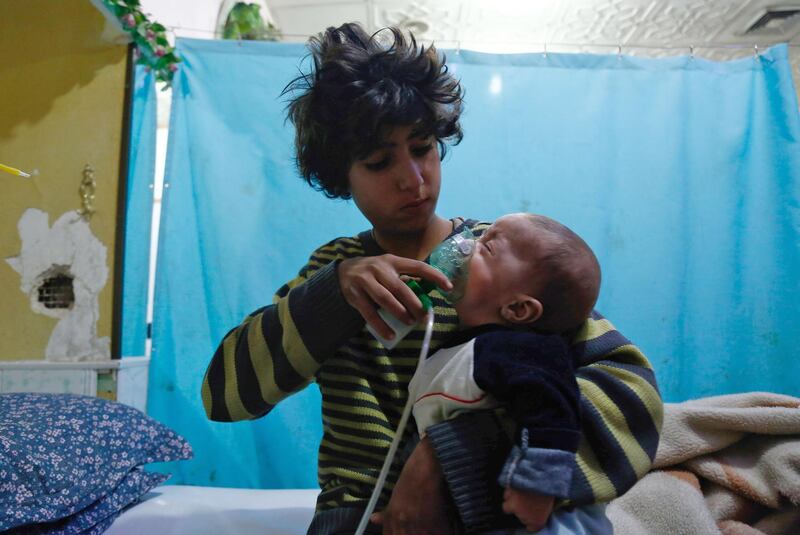Syria has been aided by North Korea as it has sought to develop its chemical weapons programme, according to an unpublished report by the United Nations which states that the Asian country has sent supplies of acid-resistant tiles, valves and thermometers.
The news comes in the wake of accusations from the United States and other countries that Bashar Al Assad’s regime has used chemical weapons as recently as the last seven days, deploying chlorine gas against the residents of the beleaguered rebel-held territory of eastern Ghouta.
The New York Times reported on Tuesday night that according to UN investigators, "North Korean missile technicians have also been spotted working at known chemical weapons and missile facilities inside Syria".
Links between the two pariah states have been put under the microscope by the authors of the report, who have highlighted trade ties between them which it is claimed could see chemical weapons know-how flow from North Korea and money from Syria to further Kim Jong-un’s nuclear and ballistic missile programmes.
The newspaper says the report alleges that “possible chemical weapons components were part of at least 40 previously unreported shipments by North Korea to Syria between 2012 and 2017 of prohibited ballistic missile parts and materials that could be used for both military and civilian purposes”.
UN officials refused to comment on the contents of the paper and did not offer any indication of when it would be released.
“I don’t know about its publication date, if any,” Stephane Dujarric, a UN spokesman, told reporters. He said: “I think the overarching message is that all member states have a duty and responsibility to abide by the sanctions that are in place.”
_______________
Read more:
[ Airstrikes resume in Ghouta as Putin's ceasefire breaks down ]
_______________
The eight members of the panel who produced the report are from different countries and have expertise in many fields relating to how weapons of mass destruction are created, how they are shipped between states to circumvent detection and whether sanctions are being busted.
William Newcomb, chair of the panel from 2011 to 2014, called the report “an important breakthrough”.
“We knew stuff was going on,” Mr Newcomb said. “We really wanted to up the game on chemical weapons programmes, and we just weren’t able to get what we needed to do so.”
The 200-page report includes details of contracts between North Korean and Syrian companies, as well as details of the materials shipped.






